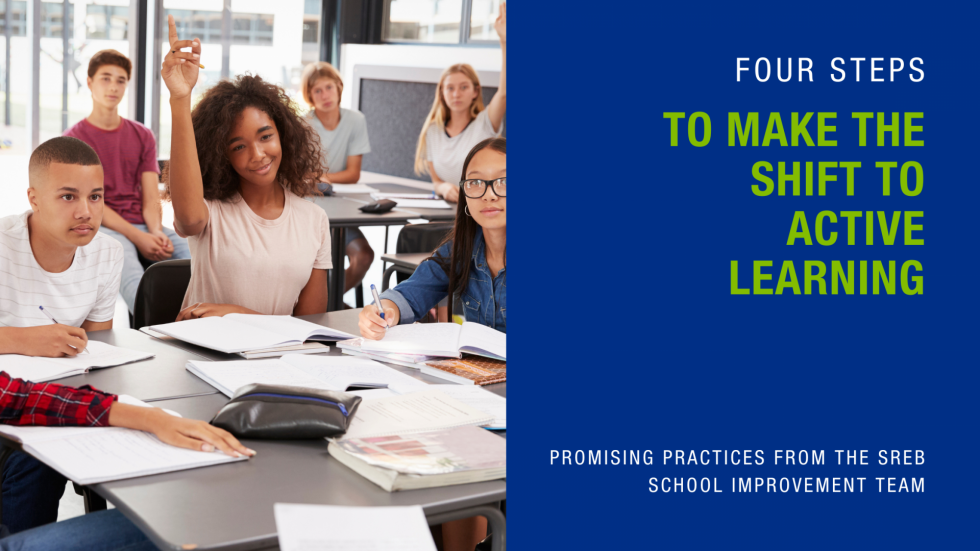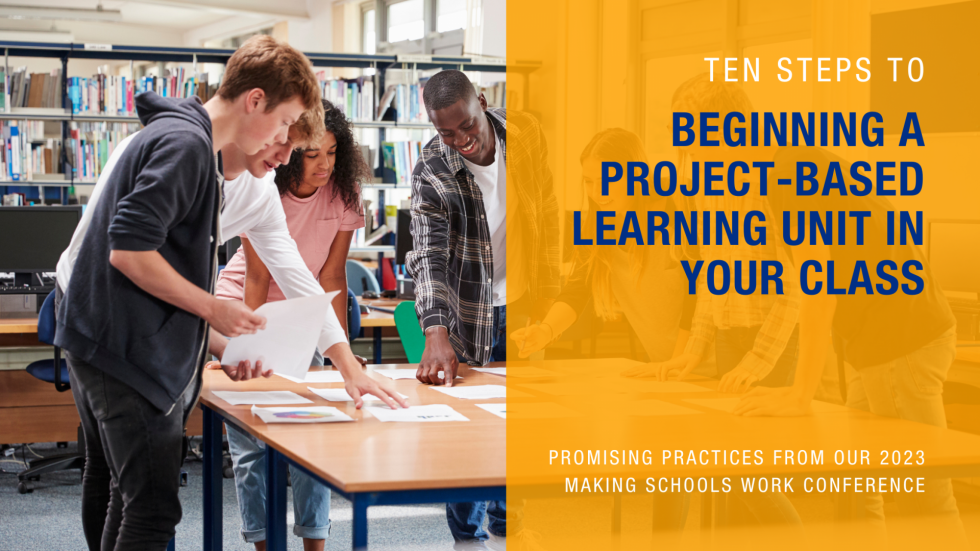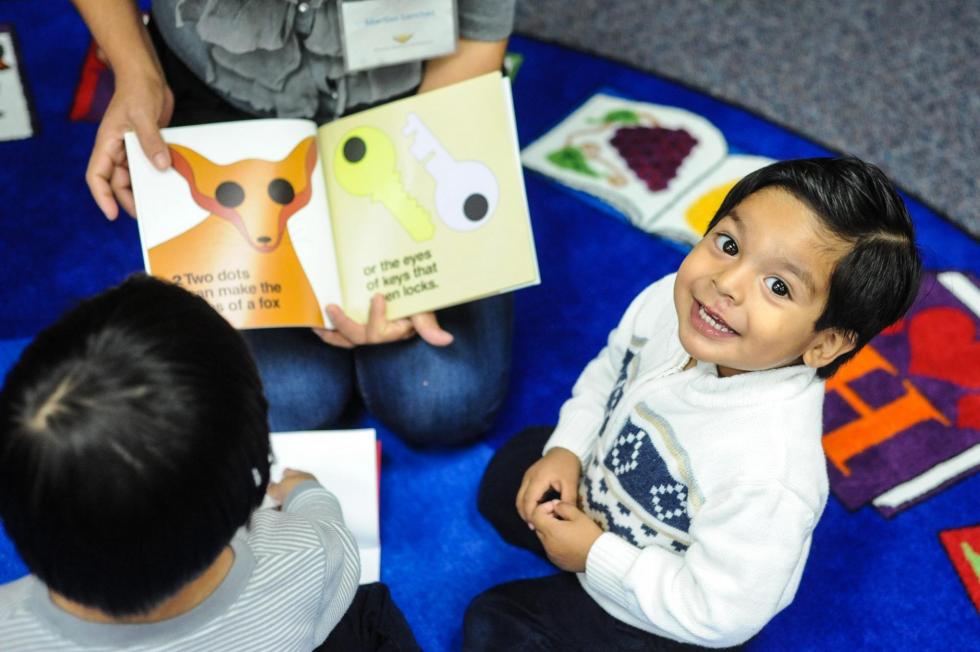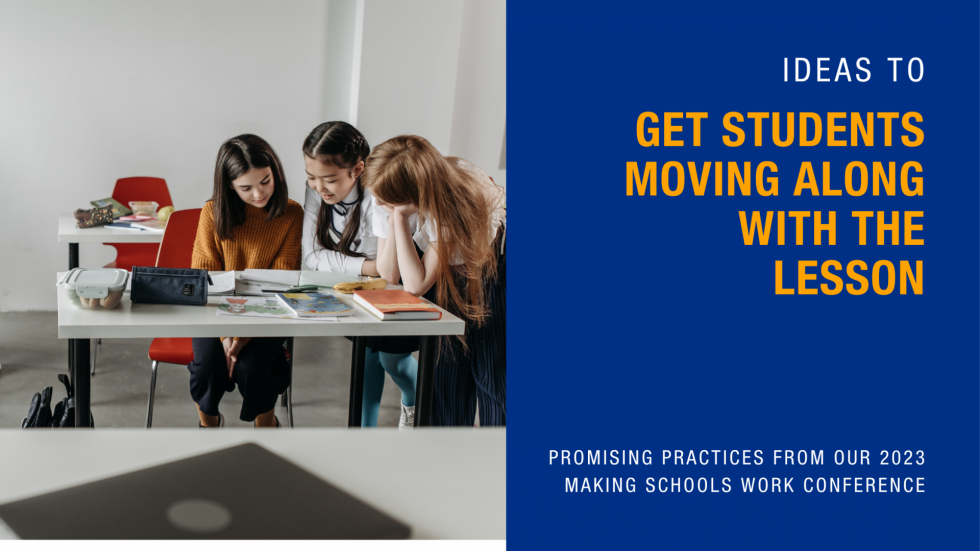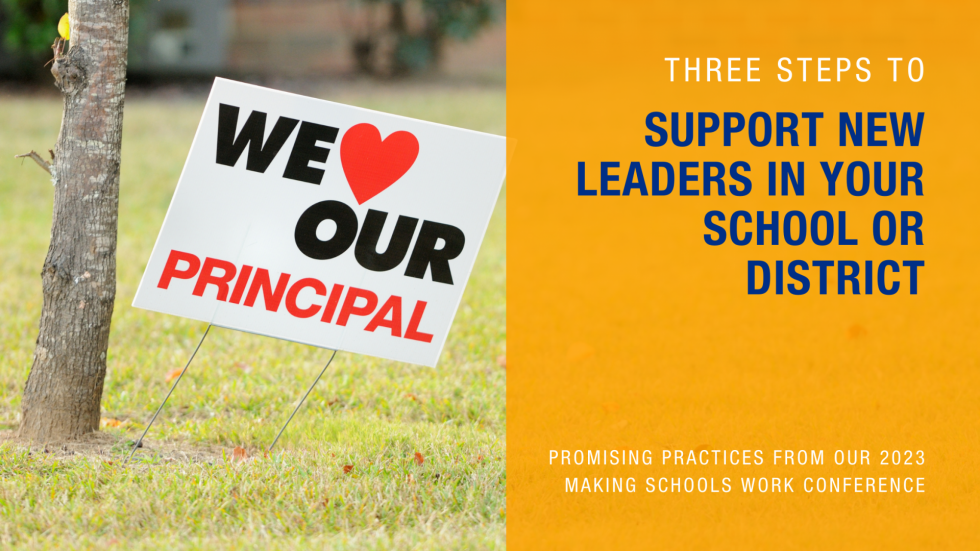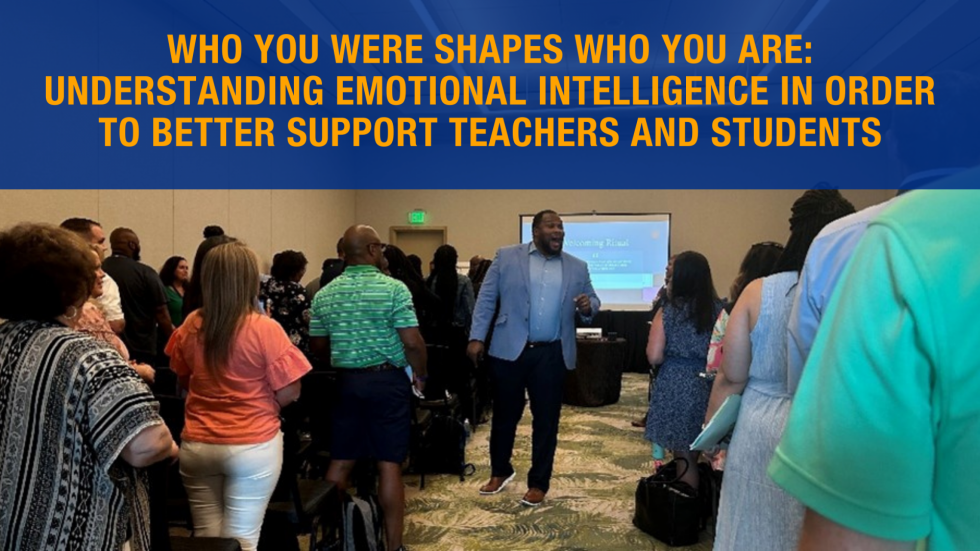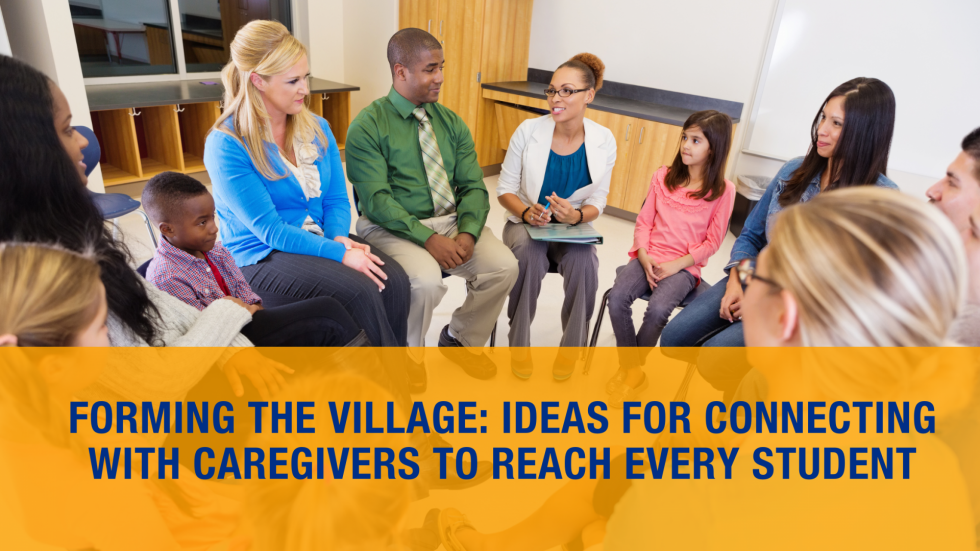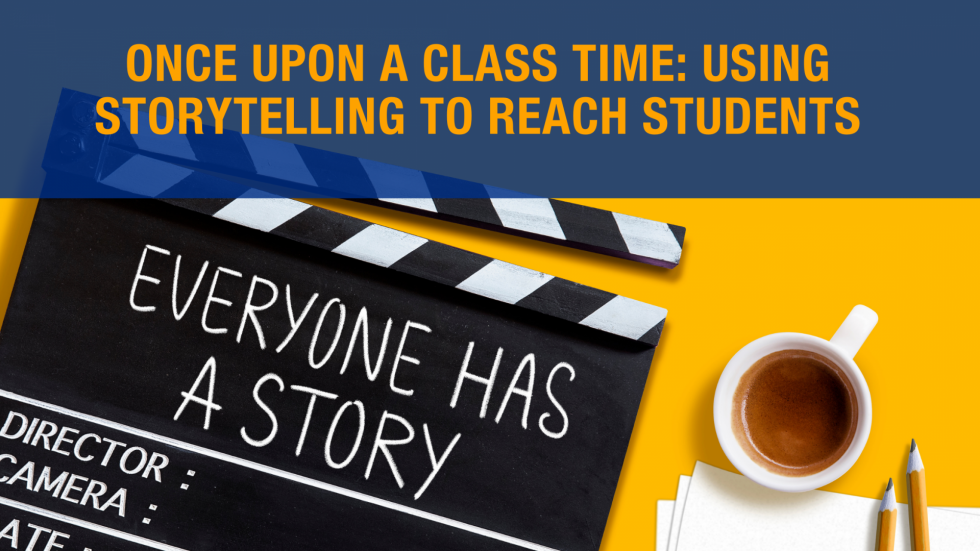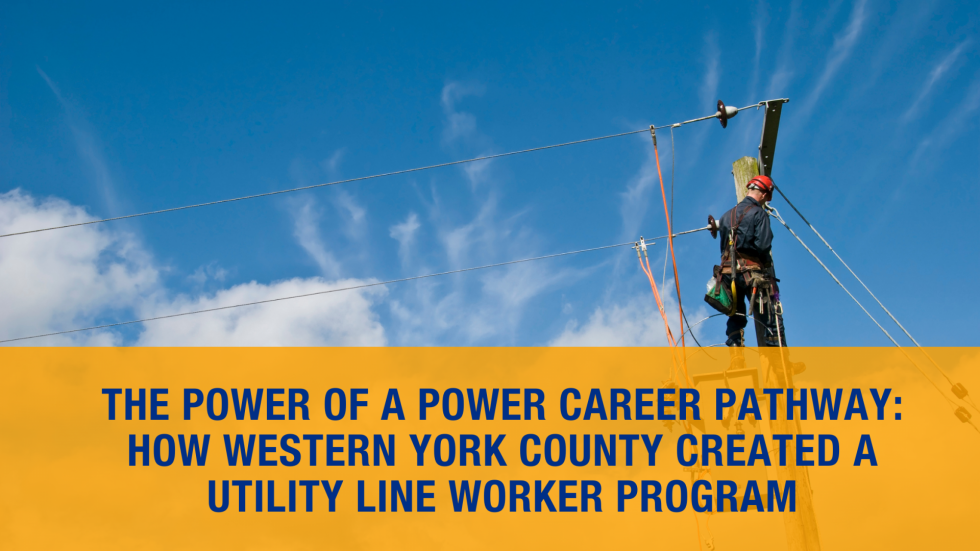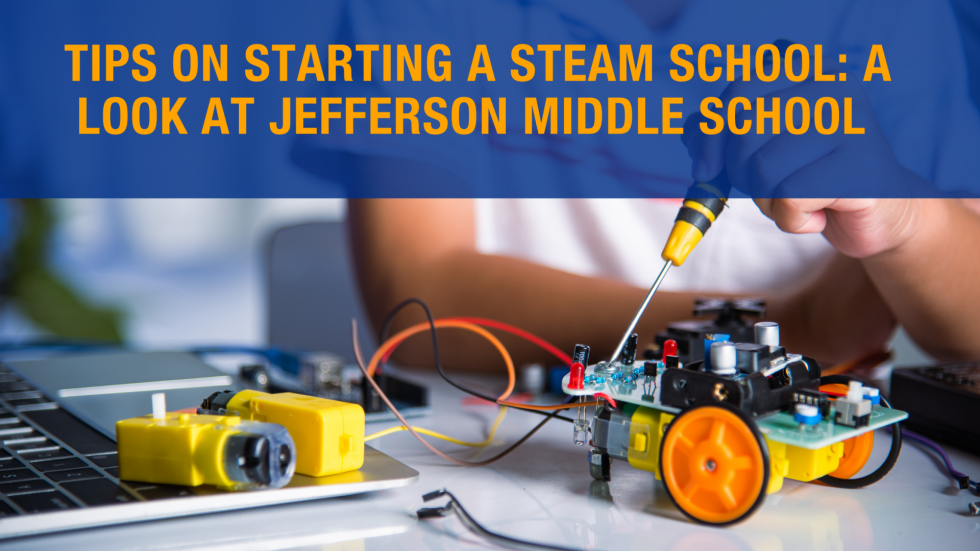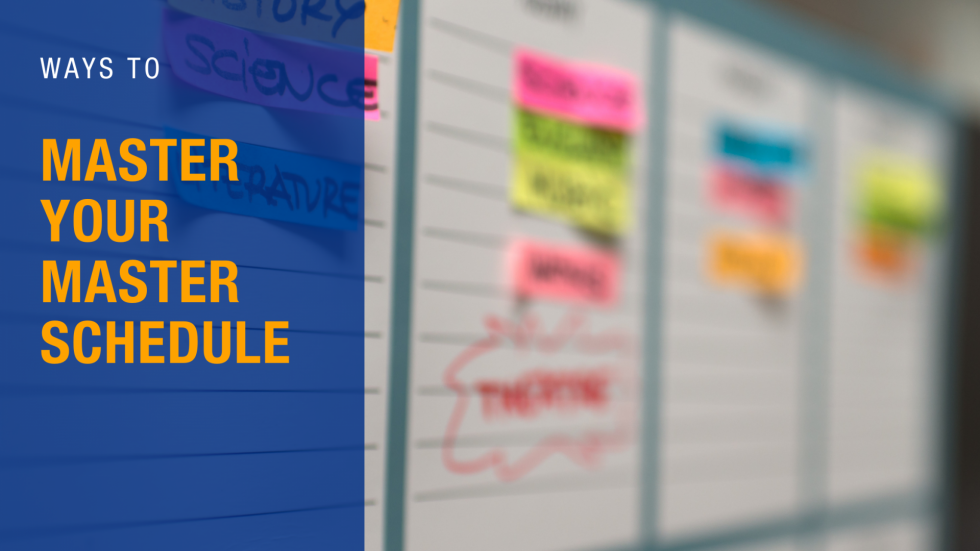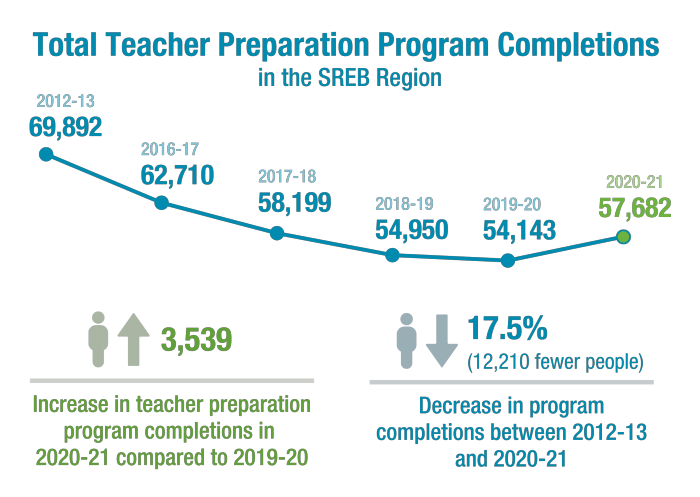Blog Main
Generation Z Isn’t Interested in Teaching
Why Not?
As a graduate student in 2021, I interviewed Ms. Sharpe for an assignment in my Qualitative Research II course. Ms. Sharpe, a Black woman, member of Generation Z, and a fourth-grade teacher two years removed from her educator preparation program, expressed frustration, angst, worry, pride and hopelessness.
Education Data Doesn’t Have to Be a Needle in a Haystack
In the data-driven age, leaders constantly turn to data to help prevent or solve problems in education. As problems such as teacher shortages and student learning loss persist in education, could a lack of data be hindering educational leaders from reaching successful outcomes?
From Hands-On to Mind-On: How to Move to Active Learning in Only Four Steps
How can you get students engaged in the learning with hands-on projects while also making sure they understand what they are learning? Try active listening!
Project-ing Your Teaching: 10 Steps to Beginning a Project-Based Learning Unit in Your Class
Have you been wanting to try project-based learning in your classroom but have no idea where to start? This 10-step guide will tell you what you need to know to create your first PBL unit!
Paying Teachers Less for Summers Off
Do teachers really get more leave than other professionals?
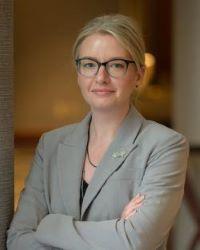 A common comment I hear in my work researching the teacher workforce and its challenges is that “teachers only work 10 months per year, so they should make less money.”
A common comment I hear in my work researching the teacher workforce and its challenges is that “teachers only work 10 months per year, so they should make less money.”
In my view, compensation should be about the level of skill and knowledge required, the impact of the position and the growth of the employee. In addition to the market rate, these are the typical elements factored into compensation for professionals.
Longitudinal literacy programming pays dividends for all ages
Veronica Valencia didn’t know many people when she moved to southwest Detroit from Michoacán, Mexico in 2005. So, when her nieces and nephews had the chance to be part of a new family literacy program at their school, Valencia jumped at the chance to be there and support them.
The family literacy program, made possible by Kentucky’s National Center for Families Learning with support from Toyota, relied on NCFL’s signature four-component family literacy model, which seeks to impact a family’s long-term trajectory through a multigenerational approach.
Learning in Motion: 10 Activities to Get Your Students up and Moving With the Lesson
How can you make your class more active in order to encourage better learning? That’s the focus of this week’s post.
In this post, we talk about 10 different activities you can do from the beginning to the end of class to make it more interactive.
Three Ways to Design for Teacher-Led Growth (and Why You Should Care)
Just like you ask teachers to create environments where students feel an ownership over their learning, teachers will do well in a teaching environment where they have ownership over their own growth.
In this post, we talk about how to accomplish this teacher-led growth in your school.
Supporting New School Leaders to Create Great Schools: Three Steps Towards Powerful Leadership
How can you support new leaders in your school or district?
In this post, we are going to talk about three different steps you should take to make sure they get the support they need.
Who You Were Shapes Who You Are: Understanding Emotional Intelligence in Order to Better Support Teachers and Students
Dr. Brian Dinkins discusses how trauma in his own life made him realize the importance of embracing emotional intelligence and using it to better reach teachers and students where they are.
In this post, we talk about what he learned and how he used it to be a better leader.
Forming the Village: Ideas for Connecting with Caregivers to Reach Every Student
Once Upon a Class Time: Using Storytelling to Reach Students
In this post, we talk about tips learned from middle school teacher Josh Bovill and his experience using his own story to connect with students in his class.
The Power of a Power Career Pathway: How Western York County Created a Utility Line Worker Program
How can you put all of the tips on creating career pathways we’ve been going over the last few weeks into practice? Let’s look at how York school district one and the Clover school district in South Carolina created a utility line worker program in their school district!
Teacher Pay Data: Reviewing trends and a teacher’s spending power in different areas of the South
Turning Childhood Dreams Into Career Development: How to Create a CTE Pipeline From Elementary to High School
At what age should you start your CTE pipeline? According to the team at Eastern Oklahoma County Technology Center, it may be earlier than you think. In this post, we talk about EOC Tech’s tips on creating a pipeline that reaches everyone from elementary students to high schoolers.
Tips on Starting a STEAM School: A Look at Jefferson Middle School
Jefferson Middle School in Columbia, Missouri, is a great example of a STEAM school that works. This is why their session at the 2023 Making Schools Work Conference was so great: They showed what made their program work and gave tips on how you can start a program at your school. And we compiled them here for you!
Mastering Master Schedules: Insight on Creating a Plan That Actually Works
How can you create a master schedule that is focused on rigor, remediation and resilience? In other words, how do you create a master schedule that will actually be useful to your teachers and students?
In this post, we talk about how Mill Creek Middle School in Tennessee utilizes promising practices in master scheduling that you may want to try for yourself.
Sharing Is Preparing: Collaborating With Students on Creating Success Criteria
We recently talked about the importance of using success criteria in your classroom. This isn’t something you have to do alone, though. Working with students to create these measures can be a great way to help them understand the purpose of your assignments.
In this post, we show you how student collaboration on success criteria can benefit everyone.
Let’s give our teachers what any employee needs to be successful
Knowing Isn’t the Same as Understanding: Tips on Aligning Your Curriculum to Encourage Deeper Learning
Students are good at learning the facts of the lesson to pass a test, However, it can be a lot harder to help them truly understand the material.
In this post, we talk about ways to help students move past knowing the assignment and reach a place of understanding…all while helping you align your curriculum to the standards.




